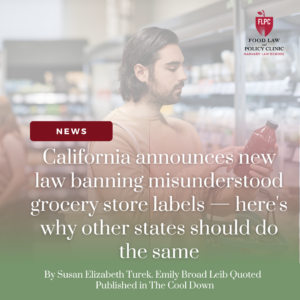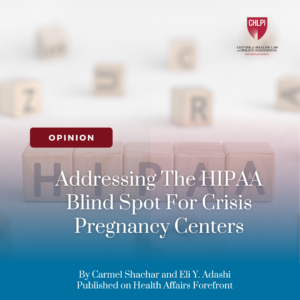This week, the United Nations Food System Summit (FSS) will convene global civil society changemakers, advocates, experts, and government officials to strategize how to leverage the food system to end hunger and protect the planet. The Summit highlights the critical nexus between how we grow, process, distribute, and consume food and the achievement of the 2030 Sustainable Development Goals (SDGs). Among these goals is SDG 12.3: “to halve per capita food waste at the retail and consumer levels and reduce food losses along production and supply chains, including post-harvest losses.” Food waste represents both a social and environmental inefficiency; between 720 and 811 million people suffer from hunger and food waste contributes 8 to 10 percent of global anthropogenic Greenhouse Gas emissions, via methane from landfills and the embodied carbon in the production of food that is ultimately uneaten. Of course, not all food that goes to waste is able to be used for human consumption, but the truth is that the large majority of the food that currently goes to waste is safe, edible, and high quality. If only one quarter of the 1.3 billion tons of food that is lost or wasted globally each year were donated and redistributed to people experiencing food insecurity, we could solve this hunger crisis and minimize the futile use of scarce environmental resources.
This critical solution, however, requires supportive laws and policies that facilitate and incentivize food system actors to donate rather than discard surplus food. Seeking to understand and improve the food donation legal landscape around the world, Harvard Law School Food Law and Policy Clinic (FLPC) initiated The Global Food Donation Policy Atlasin partnership with The Global Foodbanking Network (GFN). The project includes legal guides, which analyze the laws and policies in participating countries, as well as tailored country-specific policy recommendations and implementation assistance. The Atlas Project also identifies global best practice policies and myriad opportunities for countries to improve their laws and policies to better support food donation and mitigate food loss and waste. We share this research through an online interactive map, allowing users to compare policies in key areas across participating countries.
On this important food system week—and in advance of the International Day of Awareness on Food Loss and Waste on September 29—FLPC is excited to launch an update to the Atlas online mapping platform. We updated the coding system to offer more nuance by moving from three levels of policy coding to four levels: “no policy,” “limited policy,” “moderate policy,” and “strong policy.” For example, where a country’s policy might have previously been categorized as simply “weak” for not offering comprehensive liability protection, it will now be updated to either: 1) “moderate” if it protects certain jurisdictions or donation models or 2) “limited” if the standard of liability exists but does not adequately protect donation-receiving entities or beneficiaries. Updating our rating system allows us to offer a more detailed analysis and more precision in our cross-country comparisons, noting exactly where countries are raising the bar and where there is room for improvement. Additionally, a new binary category has been added to the interactive map to identify whether or not a country has a food loss and waste or food donation law, policy, or plan on the national level, indicating the extent to which coalition-building and crafting multi-stakeholder strategies for food waste mitigation are government priorities. Each of these adjustments are representative of the project’s aim to concisely, effectively, and thoroughly catalogue global policy efforts and opportunities to support food donation practices.
As the U.N. FSS begins, we embrace the global momentum to reflect on and remedy the shortcomings of our global food system, as well as actualize the immense potential for food and agriculture to reverse climate change and protect the right to food and nutrition in the most vulnerable areas of the world. Success of this mission is contingent upon the reduction of food waste and the redistribution of safe, high-quality, surplus food to people struggling with hunger and malnutrition. To support that aim, FLPC is pursuing research in new countries to continually expand our Atlas portfolio and resources. We will also be publishing topical issue briefs for a deeper dive into some of the most pressing legal issues affecting food donation worldwide, such as liability protection, taxes, and date labeling laws. Expect to see new content and new countries emerge on the Atlas online interactive map in the coming months as we advance the important work of food recovery organizations.


Health Law & Policy, Commentary
The Path Forward: What Patient Advocates Should Know About Health Policy in 2025-2026
November 25, 2024